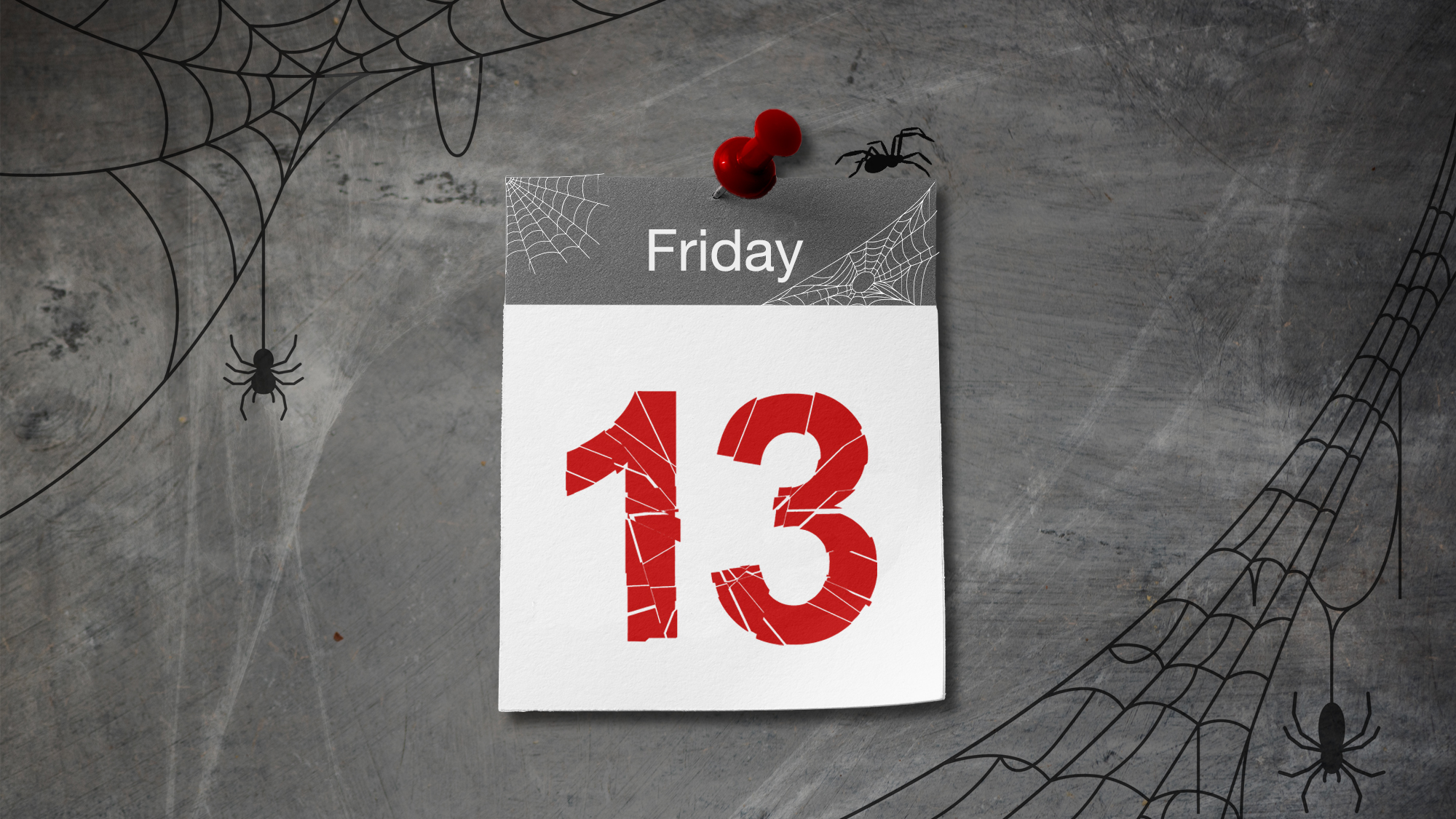Behind the myth of Friday the 13th
The inauspicious date, synonymous with bad luck, falls in October this year


A free daily email with the biggest news stories of the day – and the best features from TheWeek.com
You are now subscribed
Your newsletter sign-up was successful
We're getting a double helping of scary dates this October. Halloween is, of course, the main attraction, but a genuine Friday the 13th in the middle of spooky season is furthering the month's usual creepy vibes. In Western superstition, Friday the 13th is seen as an ominous day filled with bad luck. There's even a psychological term for those who fear the day itself: "paraskevidekatriaphobia." But who — or what — exactly is behind this mysterious and frightening anti-holiday?
When did Friday the 13th become synonymous with bad luck?
Folklore experts say it is hard to pinpoint the myth's origin, but that the number 13 and the day Friday are each rooted in separate superstitions linked to biblical tradition. Some point to the Last Supper, where Jesus and his 12 disciples, one of whom betrayed him, dined on a Thursday; the next day, Good Friday, Jesus was crucified. "The seating arrangement at the Last Supper is believed to have given rise to a longstanding Christian superstition that having 13 guests at a table was a bad omen," History.com noted — "specifically, that it was courting death." The negative associations around Fridays are "weaker," but still rooted in Christianity, as Friday was also the day Eve tempted Adam with the apple and the day Cain killed Abel.
Others speculate differently. Thomas Fernsler, an associate policy scientist at the University of Delaware in Newark, told National Geographic that 13 gets a bad rap because it comes after 12. The number 12 is considered a "complete" number by numerologists, as it relates to the 12 months in a year, the 12 zodiac signs, the 12 gods of Olympus, and more. Associating 13 with bad luck "has to do with just being a little beyond completeness," he noted. "The number becomes restless or squirmy."
The Week
Escape your echo chamber. Get the facts behind the news, plus analysis from multiple perspectives.

Sign up for The Week's Free Newsletters
From our morning news briefing to a weekly Good News Newsletter, get the best of The Week delivered directly to your inbox.
From our morning news briefing to a weekly Good News Newsletter, get the best of The Week delivered directly to your inbox.
All these theories likely exist as a way to explain the unexplainable, Dr. Simon Bronner, professor of American studies and folklore at Pennsylvania State University, told Time. He believes Friday the 13th is just a convenient way for people to explain a stroke of bad luck, pointing out that in other countries, like Italy, the number 13 is considered lucky. There may be a "grain of truth" to the Last Supper theory, "but the problem is that there is not much of a connection to the modern belief," Bronner said. "It may be a case of religious folklore that rose to explain a belief."
How has the myth of Friday the 13th infiltrated pop culture?
While American newspapers did not describe the day as unlucky until some time in the 20th century, "there are clues" that such a belief "must have existed in 19th century America in a group that went out of their way to break taboos about luck," folklorist Stephanie Hall explained in the Library of Congress' Folklife blog. Hall is referring to New York City's Thirteen Club, a late-19th-century exclusive club that met yearly for a 13-person dinner, with its first meeting on Friday, January 13th, 1882. Captain William Fowler held the 13-course dinners in the 13th room of the Knickerbocker Cottage, where club members were to pass under a ladder with a banner that read "morituri te salutamus," Latin for "those of us who are about to die salute you."
In 1907, Thomas W. Lawson published his popular novel "Friday, the Thirteenth" about a stockbroker who takes advantage of the superstition surrounding the day to crash the market. Then, in the 1980s, the premiere and expansion of the "Friday the 13th" film franchise furthered the date's notoriety, CNN noted. Most recently, Dan Brown’s 2003 novel "The Da Vinci Code" helped "popularize the incorrect claim that the superstition originated with the arrests of hundreds of members of the Knights Templar on Friday, October 13, 1307."
A free daily email with the biggest news stories of the day – and the best features from TheWeek.com
Theara Coleman has worked as a staff writer at The Week since September 2022. She frequently writes about technology, education, literature and general news. She was previously a contributing writer and assistant editor at Honeysuckle Magazine, where she covered racial politics and cannabis industry news.
